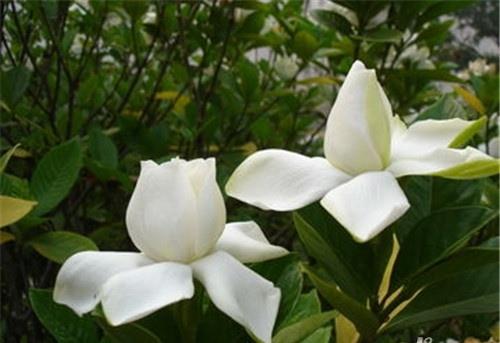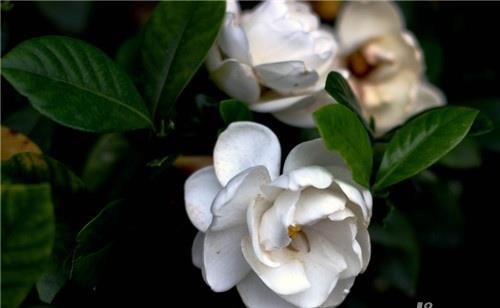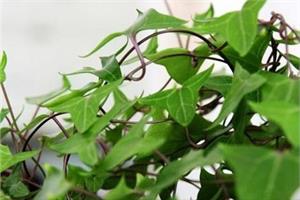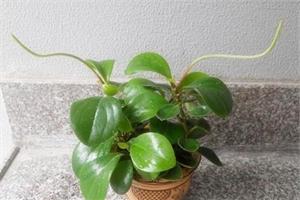How to reproduce mast flower and how to prevent disease
The fragrance of the mast flower is unique and very popular. In fact, the function of the mast flower is not only in the fragrance, but also in pharmacology. Let's take a look at how masts reproduce and how to prevent diseases.

The culture method of mast flower-- reproduction
1. Sexual reproduction: generally choose mature fruits that are full and crimson in color, bask in the shell or dry them. Before sowing, cut the pericarp of the seeds with scissors, dig out the seeds, rub them out in hot water, remove floating seeds or impurities, and then fish out the sunken full seeds.
2, asexual reproduction: cuttings can be divided into spring and autumn, cuttings choose healthy 2-3-year-old branches, cut 10-12 cm, cut off the lower leaves, the top two leaves can be retained and cut off half, first dipped in the vitamin B12 injection, and then obliquely inserted in the bed, leaving only one section above, pay attention to shade and maintain a certain humidity, transplant or plant on a pot when rooting seedlings begin to grow.
Culture method of mast flower-- culture
1. Acidophilic soil: the content of soil, water and fertilizer makes the plant unable to absorb iron, which affects the formation of chlorophyll, withering branches, scorching leaves, and even death. To use fertile, loose, well-drained acid soil, such as pine sawdust thoroughly mixed into the soil, the use effect is also very good.
2. Like shade: avoid the scorching sun, but some people often mistakenly think that gardenia requires full shade, resulting in mistakes in cultivation. In fact, while paying attention to cultivating its cool environment, it is necessary to maintain 60% light throughout the day in order to meet the needs of its growth.
3, like humidity: if the air humidity is less than 70%, it will directly affect the flower bud differentiation and bud growth, but too wet will cause root rot and branch withering, leaf yellow shedding phenomenon. In addition to normal watering, foliar and nearby ground should be sprayed with clean water frequently to increase air humidity appropriately.
4. Like fertilizer: it is appropriate to apply fermented bean cake, sesame sauce residue, peanut bran and other fertilizers, which can be acidic after fermentation, but must be applied with thin fertilizer, avoid thick fertilizer and raw fertilizer, and do not apply fertilizer during hibernation. If you have been planting for less than three years, do not give human faeces and urine. Too much nitrogen fertilizer will result in thick branches, large leaves, thick green, but no flowering. Lack of phosphorus and potassium fertilizer will also appear the phenomenon of non-flowering or bud withering and shedding.
5. Like temperature: 18 ℃ to 22 ℃ in growing period, 5 ℃ to 10 ℃ in overwintering period, and easy to freeze if it is lower than-10 ℃.
6. Timely pruning: Gardenia jasminoides has strong sprouting power, easy overlapping branches, airtight and dispersed nutrition. In normal shape, three main branches should be selected according to the shape of the tree, and other branches sprouting from root tillers should be cut off at any time. After the flowers fade, the branches should be truncated in time to promote the germination of new branches under the cut mouth. Pick the heart after the new branch grows three nodes to avoid growing blindly.

The culture method of mast flower-- preventing disease
1, chlorosis: the occurrence is more common, caused by a variety of reasons, so it is necessary to take different measures for prevention and treatment, generally apply rotten human feces and urine or cake fertilizer. When the young leaves are deficient in iron, the veins of the young leaves lose green and yellowing, which will seriously yellowed the whole leaves, and even scorched leaves and branches wither, resulting in plant death. To this kind of situation, can spray 0,2% mae 0,5% ferrous sulfate solution to prevent and cure.
2. Soot disease: it occurs in branches and leaves. After it is found, it can be scrubbed with clean water, or sprayed with 0,3 Baomedo stone-sulfur mixture, 1000-1200 times carbendazim.
3, rot disease: often occurs in the lower trunk, stem expansion, cracking, found immediately scraped or coated with 5-10 degree stone-sulfur mixture, several times can be effective.
The above is the introduction of this article, I believe you have a simple understanding after reading it, if necessary, you can continue to pay attention to the No. 1 home network for more information.
Related
- Wuhan Hospital Iron Tree Blooming Result Was Instantly Frightened by the Gardener Master
- Which variety of camellia is the most fragrant and best? Which one do you like best?
- What is the small blue coat, the breeding methods and matters needing attention of the succulent plant
- Dormancy time and maintenance management of succulent plants during dormancy
- Minas succulent how to raise, Minas succulent plant pictures
- What are the varieties of winter succulent plants
- How to raise succulent plants in twelve rolls? let's take a look at some experience of breeding twelve rolls.
- Attention should be paid to water control for succulent plants during dormant period (winter and summer)
- Watering experience of twelve rolls of succulent plants
- Techniques for fertilizing succulent plants. An article will let you know how to fertilize succulent plants.



